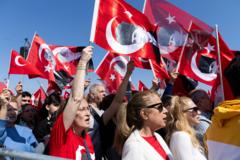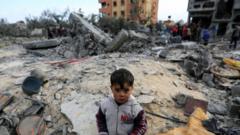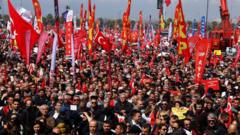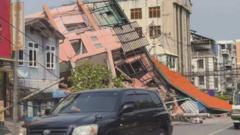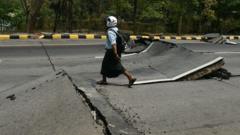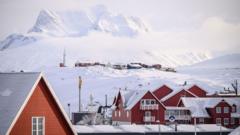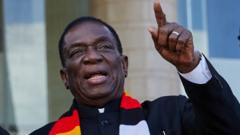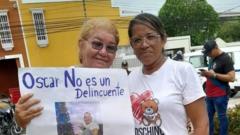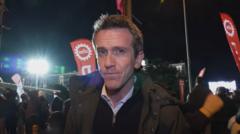**Mark Lowen, a prominent journalist, faces deportation from Turkey, raising concerns over press freedom amid escalating political tensions following the arrest of opposition leader Ekrem Imamoglu.**
**BBC Correspondent Mark Lowen Deported from Turkey Amid Protests**
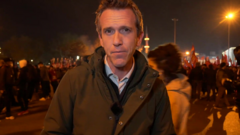
**BBC Correspondent Mark Lowen Deported from Turkey Amid Protests**
**Former Turkey correspondent expelled after 17-hour detention while covering protests linked to political unrest**
In a significant incident highlighting ongoing tensions in Turkey, BBC correspondent Mark Lowen has been deported after his arrest in Istanbul while covering protests. The journalist was detained for 17 hours before being ordered to leave the country, reflecting an increasingly challenging environment for press operations within Turkey.
Lowen was in Turkey to report on the civil unrest that erupted following the arrest of Istanbul's Mayor Ekrem Imamoglu, who has been charged with corruption but denies any wrongdoing. Known to be a strong opponent of President Recep Tayyip Erdogan, Imamoglu has been selected by the main opposition party as a candidate for the 2028 presidential election.
The BBC released a statement confirming Lowen's deportation, describing it as "extremely troubling" and a significant infringement on journalistic freedom. In his own words, Lowen expressed distress over being expelled from a country where he had lived and worked for five years, emphasizing the importance of press freedom for a healthy democracy.
The BBC's CEO of News, Deborah Turness, echoed Lowen's sentiments, underscoring that no journalist should endure such treatment for performing their professional duties. The situation remains volatile as thousands continue to protest across Turkey, decrying Imamoglu's arrest as politically motivated. The Turkish authorities, however, insist on maintaining their judicial independence.
Protests have resulted in a wave of arrests, with more than 1,400 people detained amid calls for justice and democracy. President Erdogan has condemned the protests as "evil" and attributed the unrest to opposition efforts to incite discord. Despite the intensity of the protests, plans for upcoming demonstrations by the Republican People's Party (CHP) signal that the political landscape in Turkey is still very much charged.
Lowen was in Turkey to report on the civil unrest that erupted following the arrest of Istanbul's Mayor Ekrem Imamoglu, who has been charged with corruption but denies any wrongdoing. Known to be a strong opponent of President Recep Tayyip Erdogan, Imamoglu has been selected by the main opposition party as a candidate for the 2028 presidential election.
The BBC released a statement confirming Lowen's deportation, describing it as "extremely troubling" and a significant infringement on journalistic freedom. In his own words, Lowen expressed distress over being expelled from a country where he had lived and worked for five years, emphasizing the importance of press freedom for a healthy democracy.
The BBC's CEO of News, Deborah Turness, echoed Lowen's sentiments, underscoring that no journalist should endure such treatment for performing their professional duties. The situation remains volatile as thousands continue to protest across Turkey, decrying Imamoglu's arrest as politically motivated. The Turkish authorities, however, insist on maintaining their judicial independence.
Protests have resulted in a wave of arrests, with more than 1,400 people detained amid calls for justice and democracy. President Erdogan has condemned the protests as "evil" and attributed the unrest to opposition efforts to incite discord. Despite the intensity of the protests, plans for upcoming demonstrations by the Republican People's Party (CHP) signal that the political landscape in Turkey is still very much charged.


